SAG-AFTRA Strike At 100 Days: What Does The Milestone Mean For The Movie Industry?
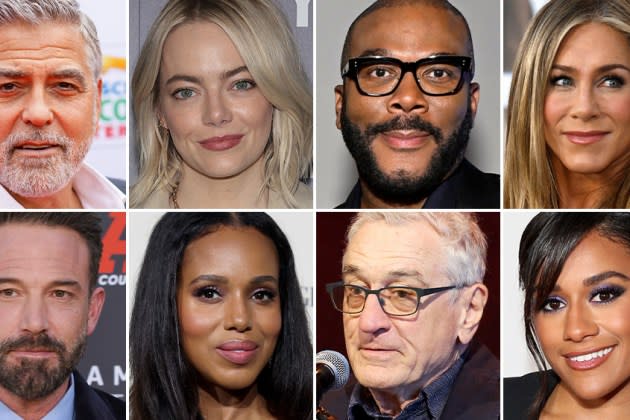
Concerned that a prolonged actors strike would bring long-term, irreparable harm to the industry, Hollywood’s biggest stars on a Zoom call this week with SAG-AFTRA leaders pledged to commit $150 million over three years to remove a cap on union dues to bring more coin to guild coffers, and they suggested a streamer residual structure that would put actors on the bottom of the call sheet before them, in hopes that getting money faster would help more struggling actors qualify for benefits.
Deadline can reveal that the full roster of actors at that meeting were George Clooney, Scarlett Johansson, Kerry Washington, Tyler Perry, Bradley Cooper, Meryl Streep, Jennifer Aniston, Robert De Niro, Ben Affleck, Laura Dern, Emma Stone, Reese Witherspoon, Ryan Reynolds, and Ariana DeBose.
More from Deadline
They were there to express concerns about the prolonged disruption of the business by an actors strike that has reached its 100th day today. Those concerns were not eased when one of the stars raised fears the strike could stretch through Christmas, and the financial harm that would have for many.
“Christmas is just a day,” was the response from a SAG-AFTRA leader, we are told. As guild leadership took to the media to pour water on the gesture, the guild issued guidelines to its members that they are forbidden to wear Halloween costumes representing characters from movies and TV shows from struck companies.
After that meeting, SAG-AFTRA president Fran Drescher thanked the stars for their proposal but said it wasn’t legally compatible with the union’s contract and that it “does not impact the contract that we’re striking over whatsoever.”
Welcome to another day of the Twilight Zone in the ongoing actors strike, in which the studios walked away from the table and have not at this moment scheduled a return. Meanwhile, the AMPTP’s battle with the Writers Guild and now SAG-AFTRA has contributed to a $5 billion loss to California’s economy, the loss of 45,000 industry job, and a $400 million hit to the fall box office (for the post-Labor Day period through October 18, compared with pre-pandemic 2019) because the sides can’t seem to find common ground after deals were made with the WGA and Directors Guild.
It would be unfair to characterize the sides for not trying, but for below-the-line workers who haven’t cashed a paycheck in six months, seeing a lack of urgency on both sides to stop the bleeding from the actors’ walkout, and the continued public war of words that ensue each time talks break down, has many questioning whether the damage will be beyond repair when a deal is finally reached.
“I’m worried about a lot of companies,” said one exhibition boss to Deadline about the strike’s expected impact on movie theaters, especially with studios poised to shift their tentpoles from the 2024 theatrical release calendar. Marvel Studios’ Deadpool 3 is the first casualty, as Deadline first reported.
“This time there isn’t any government money to fall back on, which was the case during the pandemic,” added the circuit chief.
RELATED: SAG-AFTRA Strike Photos: Actors & Performing Artists On The Picket Line
One side is throwing on the table and the other side is rejecting the kind of terms one usually sees floated when negotiations just get underway. Streamers have been getting a free ride for a long time, and the residuals given actors on series like Orange is the New Black is a joke. But the sides are not only far apart on terms, they can’t even agree what those terms will actually cost the studios. In the most recent walk from the table, Netflix co-CEO Ted Sarandos called SAG-AFTRA’s suggestion for a 57 cent per subscriber annual charge “a levy on subscribers,” which to him was “a bridge too far.”
On Thursday night in a note to members, the SAG-AFTRA TV/Theatrical Negotiating Committee said, “For 98 days, we’ve stood strong, united in our pursuit of justice, fairness, and the value we bring to the industry.”
“The WGA triumphed after 148 hard-fought days, proof that perseverance will break the toughest barriers and result in the transformative change we need to justify everyone’s sacrifices,” continued the note.
Forty-eight more days sounds like a long time to the hairdresser, the camera operator, the grips, et al, out of work.
As studios and SAG-AFTRA wrangle over terms on AI and streaming residuals, actors’ inability to promote major studio projects has cost millions at the box office, not just in big movies that have moved such as the Zendaya title Challengers, Sony/Marvel’s Kraven the Hunter and Legendary/Warner Bros’ Dune: Part Two, but also in watered down tickets sales from pics which were unable to fully promote, i.e., Expendables 4 ($16.5M), A Haunting in Venice ($40M) and The Creator ($34.1M) to name a few. Box office for the post-Labor Day period to date this year through October 18 totals $642M, down from 2019’s mega robust $1 billion.
This weekend is a perfect example with Killers of the Flower Moon opening globally without the benefit of promotion by stars Leonardo DiCaprio, Robert De Niro and Lily Gladstone, a Native American actress who is a revelation in the film.
“If they don’t promote, that hurts box office, which therefore hurts their quote for the next big project,” observes one studio distribution executive about stars’ inability to do press during the strike.
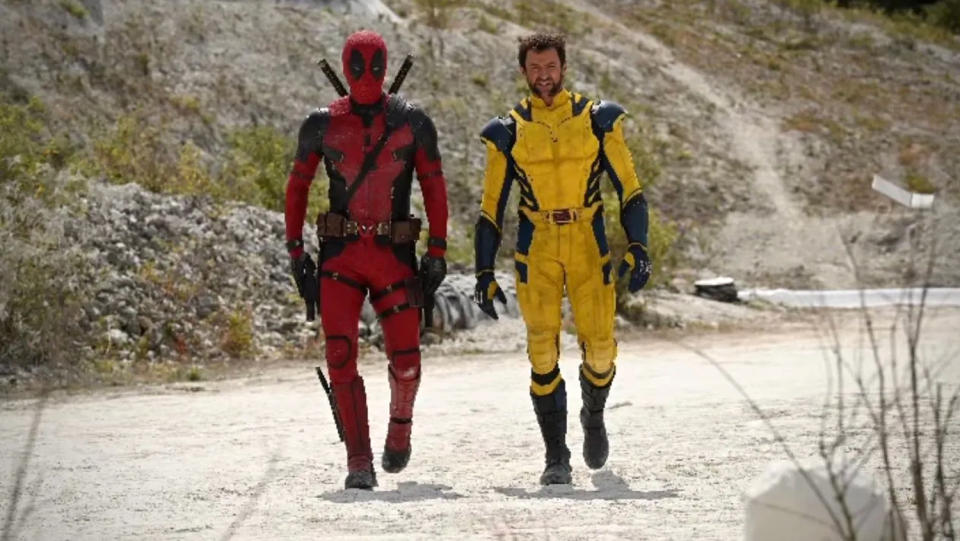
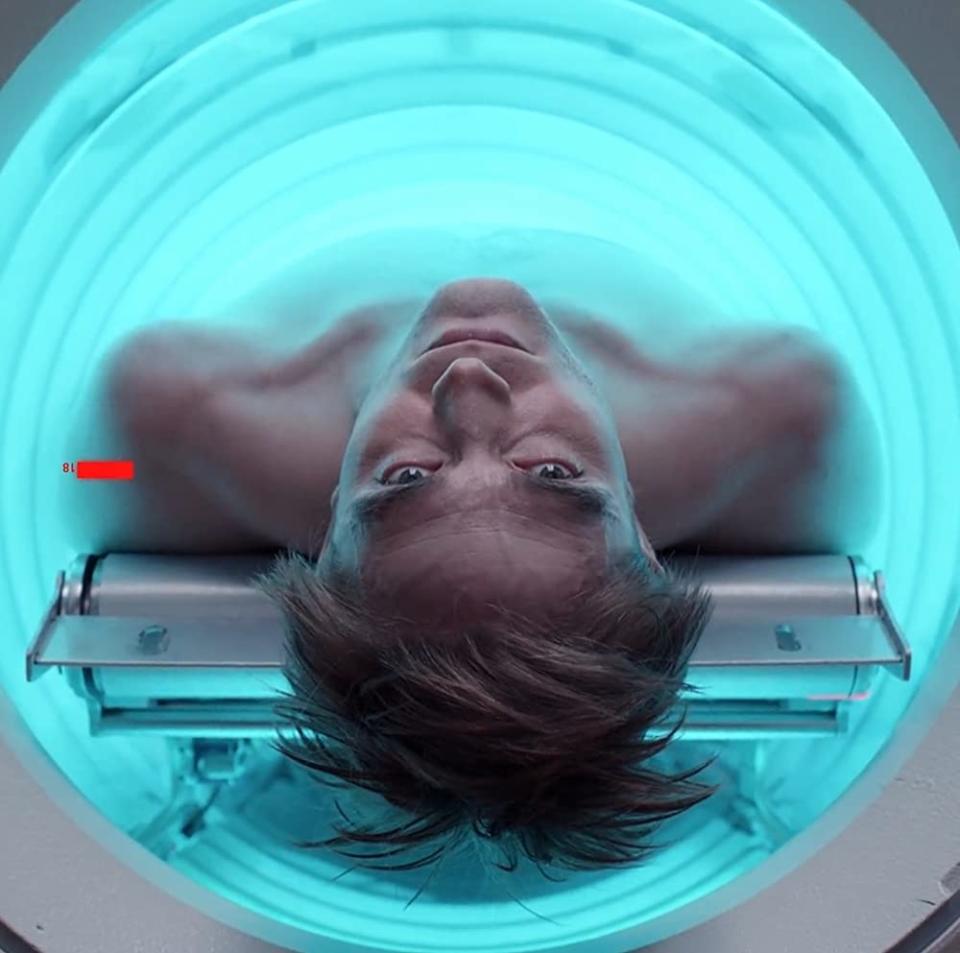
Following Deadpool 3, more seismic shifts on the theatrical release calendar are expected. Some exhibitors would not be shocked to see some Q1 and Q2 releases, like A Quiet Place: Day One (March 8), Disney’s Snow White (March 22) and Warner Bros’ Bong Joon-ho movie Mickey 17, to segue to summer. Already, there are a lot of placeholders on the Q3 and Q4 calendar for untitled major studio releases.
Some analysts are estimating that domestic box office could be off some 30% in 2024 from 2023.
The strike has hobbled studios’ marketing power to propel tentpoles to bigger heights at the box office, forcing companies to scale back Hollywood premieres to fan events or quiet screening receptions. On the horizon for November are Disney’s The Marvels (November 11), Lionsgate’s Hunger Games: The Ballad of Songbirds & Snakes (November 17), Disney’s Wish (November 22) and Apple/Sony’s Napoleon (November 22). Already, an expected $75M opening for The Marvels is half of what Captain Marvel debuted to in 2019. With no stars to promote it, the sequel had zero presence at either San Diego or New York comic-cons.
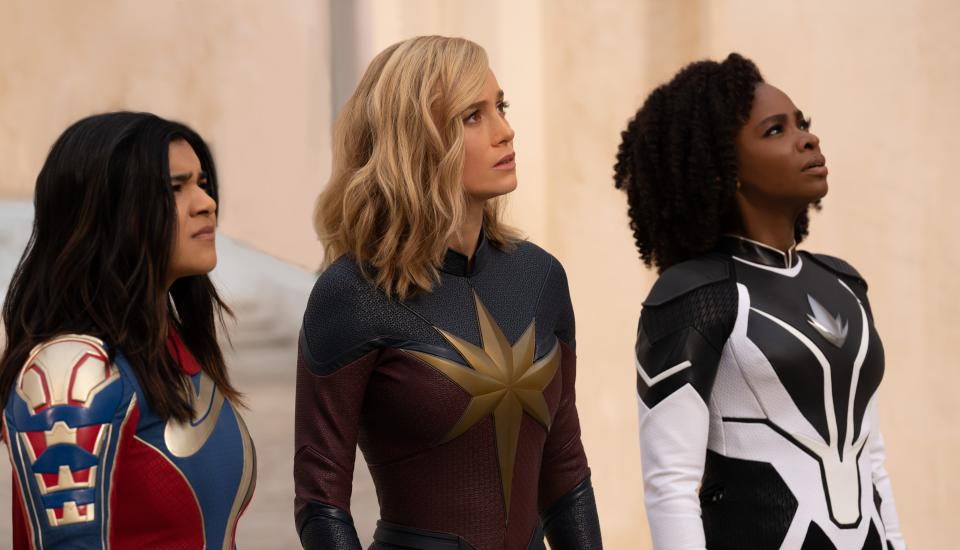
SAG National Executive Director and Chief Negotiator Duncan Crabtree-Ireland told Deadline recently that its 160,000 members remain steadfast in its resolve to wait out studios, even at the 100-day mark. “Our members and our entire negotiating committee remain strong and energized at this milestone,” he said. “I feel that this is a milestone that should never have come to pass because the studios simply didn’t negotiate in a straightforward way. We made significant concessions in our latest proposal, and a deal should have been reached a long time ago. When the companies come back to the table, I’m optimistic that we’ll find a path forward.”
Ticking Clock For Actors In Stalled Features
The hope for many filmmakers and studios is that if the strike ends soon, stalled productions can resume in January. That is looking sketchier with each passing day, and there is no clear sign either side will return to the bargaining table quickly.

In addition to Deadpool 3, those halted shoots during the actors strike include Paramount’s Gladiator 2 (release date: November 22, 2024), Mission: Impossible – Dead Reckoning Part Two (June 28, 2024), Warner Bros’ Clint Eastwood-directed drama Juror Number 2 (TBD), and Universal’s adaptation of the Broadway musical Wicked (Part One due on November 27, 2024).
These productions didn’t have to worry about losing actors when scripts were on hold during the writers strike. Now that WGA has hammered a deal with the AMPTP, and TV writers rooms have ramped back up, scheduling issues for casts and shooting space become more challenging the longer a strike lingers.
As of now, talent has only had to pass on projects in potential future opportunities due to their current obligations. One example is Daisy Edgar-Jones falling out of Ron Howard’s Origin of Species because of Twisters‘ production stop. But that doesn’t mean talent may not fall out of films whose productions were shuttered because of first-position priority on other projects. An example of this would be a star in a TV series like The Last of Us or Stranger Things, which take precedent over other projects stalled by the strike. In that scenario, an actor may be forced to fall out of halted productions if those TV writers rooms began delivering scripts and series production dates firm up. Add the further wrinkle of scheduling conflicts for any talent committed to projects with SAG-AFTRA interim agreements.
Feature shoots aren’t the only ones affected by the 100-day strike as projects in pre-production and development slowed down significantly. It is difficult to assemble casts when actors weren’t even allowed to meet with studios for roles, let alone close a deal.
Even when it came to attaching directors to projects following the DGA’s deal in June, momentum has been slow because actors usually have a say in choice of a helmer. The WGA deal has seen an uptick in directors feeling comfortable enough to sign on to projects: Deadline recently broke the news that Chris Rock is in talks to direct a Martin Luther King biopic, and that Jaume Collet-Serra is directing Kate Warne at Amazon MGM. These developments will come at a trickle until a deal between SAG-AFTRA and the AMPTP can be made.
Interim Agreements Create Awards-Season Uncertainty
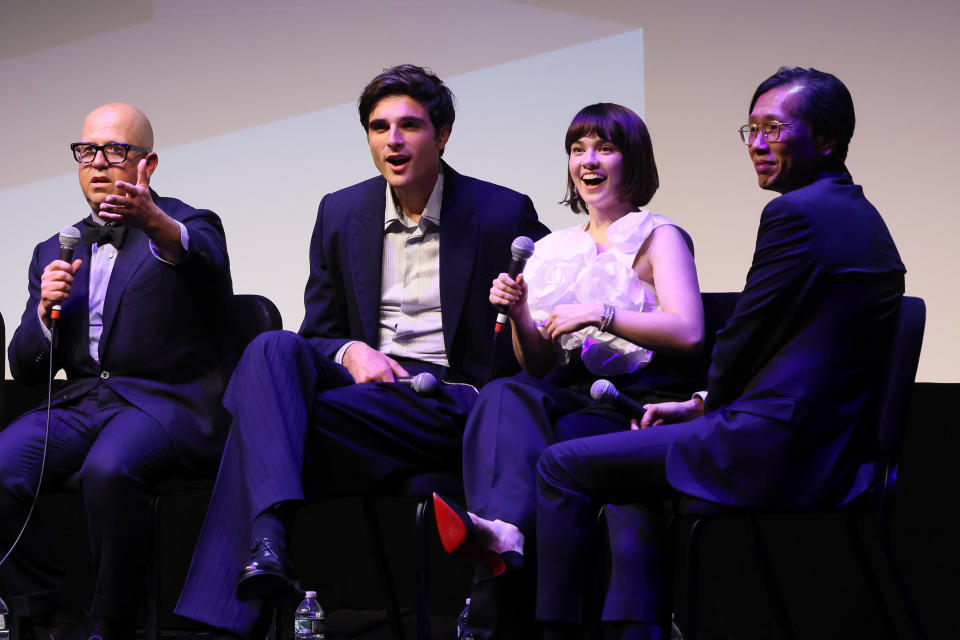
On a recent Monday night, A24 held its Los Angeles premiere of Priscilla, with filmmaker Sofia Coppola and stars Jacob Elordi and Cailee Spaeny in attendance at a post-screening reception at the Academy Museum. A24 is in a unique position next to other studios in the actors strike since it isn’t a member of the AMPTP. Priscilla, like many A24 titles this Oscar season and others by indie distributors including Neon, were cleared for a SAG-AFTRA interim agreement. Some 200 contracts have been handed out to independent features by the guild, with non-signatory distributors agreeing to abide by SAG-AFTRA’s new guidelines on AI provisions and streaming revenue sharing. The interim agreements have allowed such productions to have their cast to publicize at festivals and awards season events.
RELATED: SAG-AFTRA Interim Agreements: Full List Of Movies And TV Series
In a fiercely promoted awards season, titles with SAG-AFTRA interim agreements have a leg up on Oscar bait from such AMPTP companies like Amazon, Warner Bros or Netflix in regards to dazzling voters. That includes Barry Koegan and Jacob Elordi, who star in Amazon MGM Studios’ upcoming Saltburn; they are unable to promote that movie since it’s from a struck company, leaving the film’s Oscar-winning filmmaker Emerald Fennell to do it solo. Such is the fate of many films in contention this season: It’s up to the directors to do the heavy lifting on campaigning.
Unlike the pandemic when the Academy of Motion Pictures of Arts and Sciences extended qualification dates into the new year and pushed its Oscar ceremony, no plans are afoot by the organization to augment an awards season that’s been turned upside down due to the strike with many stars unable to tubthump. It’s no coincidence to see such stars as Clooney, Stone, and DeBose lobbying the SAG-AFTRA leadership for potential solution to the strike: All have awards titles in the mix with MGM’s The Boys in the Boat, Searchlight’s Poor Things and the Disney animated movie Wish, respectively.

While actors from such SAG-AFTRA interim agreement-contracted pics like Ferrari have had no problems showing up at fall film festivals, some are reluctant to do so for fear of appearing disloyal, even amidst reassurances from leadership. A-list actors have been among the most reticent with Viola Davis being the first major star to make her thoughts known. She’d been set to star in G20, a film to be distributed though not produced by Amazon. While she was also among the producers granted an agreement for the action thriller, she told Deadline first that she would not be moving forward with the project amidst the strike, feeling that to do so when so many others were out of work would not be “appropriate.”
The initial reaction to the introduction of these agreements was, and continues to be, one of confusion, with many questioning how ultimately studio-backed projects like New Line’s horror pic The Watchers and Francis Ford Coppola’s Megalopolis are cleared alongside ultra-low budget indies. Actor-turned-indie producer Jonathan Daniel Brown was among those airing out grievances, frustrated by the sense that “star-studded projects” were getting the go-ahead, as small films were left to “rot on the vine.” A commonplace fear is that interim agreements could wind up producing revenue for the very companies being struck against, should they put in a big offer at the festivals. A24’s streaming output deal with Showtime/Paramount+ is currently expired, with the studio weighing offers as to where next to put its pics in that home window.
While SAG-AFTRA will defend that such agreements are putting people back to work during a time of economic turmoil, there’s a big swing in supplying livelihoods on a short-scheduled indie movie priced at $10M than a massive $100M studio enterprise that employs thousands over several months.
Whether these interim-cleared projects will fill the voids left on the theatrical release calendar once the major studios shift their titles due to the ongoing strike is greatly questioned. It’s been quite clear post-pandemic that smaller movies have been challenged at the box office vs. pre-Covid times; such titles have shorter theatrical windows before arriving in the homes, some around 10 to 17 days. In the end, whatever deal is agreed to between AMPTP and SAG-AFTRA supersedes all of the interim agreements that have been previously signed and poured over by SAG-AFTRA lawyers, who’ve been jammed with requests during the process.
Where is the light at the end of the tunnel? Drescher in her IG message to guild members Thursday night said, “This too shall pass. But this is the moment where we don’t succumb to pressure. It is the moment where we stand tall and firm.”
But at what final cost?
Best of Deadline
SAG-AFTRA Interim Agreements: Full List Of Movies And TV Series
2023 Premiere Dates For New & Returning Series On Broadcast, Cable & Streaming
Sign up for Deadline's Newsletter. For the latest news, follow us on Facebook, Twitter, and Instagram.


